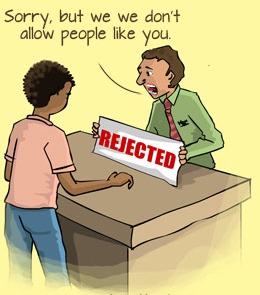 Let me start by saying, that I believe the policies in question, are being widely misused against any complainant that public bodies want to fob-off. This is so, because in the UK there is a cover-up culture among the public sector and arbitrary labelling is used to deflect complainants, they can simply claim that a complainant’s behaviour is unreasonable, or vexatious. And once labelled so, it’s on record and gives them carte blanche to ignore you or treat you a particular way. They also disseminate this labelling of you to other bodies.
Let me start by saying, that I believe the policies in question, are being widely misused against any complainant that public bodies want to fob-off. This is so, because in the UK there is a cover-up culture among the public sector and arbitrary labelling is used to deflect complainants, they can simply claim that a complainant’s behaviour is unreasonable, or vexatious. And once labelled so, it’s on record and gives them carte blanche to ignore you or treat you a particular way. They also disseminate this labelling of you to other bodies.
In law, being vexatious means…
“denoting an action or the bringer of an action that is brought without sufficient grounds for winning, purely to cause annoyance to the defendant.”
But in general terms…
“causing or tending to cause annoyance, frustration, or worry.”
Well anyone can say anything annoys them and what annoys one person won’t annoy another. There are many variables that affect such an emotion. This terminology is in widespread misuse against valid complainants, who are shocked and outraged at wrongful outcomes when they submit complaints. Where the complaint handler opines what evidence means or shows, distorts events and reaches an unjust conclusion. The NHS is a prime example of how badly public bodies are handing complaints, how there is a culture of denying, defending, diminishing, delaying and dismissing complainants. So of course, any reasonable person will persist for at least some time, in seeking justice and remedy if the outcome of a complaint wasn’t what it should be, unless they are too exhausted with it all. Sometimes, they don’t have a choice but to persist however, for instance if it is detrimentally affecting their health care. And what about the emotional state of the complainant who has been poorly treated! Annoyed is likely to be an understatement in that regard.
Specific policies have sprung up from public bodies on how to deal with vexatious complainants. Google “vexatious complainant” and you will see hundreds of public body policies for such alleged complainants. As an example, here is the Local Government Ombudsman’s (LGO):
“This guidance covers ‘unreasonable complainant behaviour’, which may include one or two isolated incidents, as well as ‘unreasonably persistent behaviour”
“Examples of Unreasonable Actions and Behaviour” (a relevant selection from their list)
-
Introducing trivial or irrelevant new information at a later stage.
-
Adopting a ‘scatter gun’ approach: pursuing parallel complaints on the same issue with various organisations.
-
Making excessive demands on the time and resources of staff with lengthy phone calls, emails to numerous council staff, or detailed letters every few days, and expecting immediate responses.
-
Refusing to accept the decision; repeatedly arguing points with no new evidence.
Autistics usually have a very strong need for justice. And often tending to research their options, as well as being rule-bound, autistics will perhaps be more inclined to utilise complaints procedures in the first place – that’s what they are there for isn’t it? They also frequently suffer processing delays and certain things might not occur to them at the time, they may have a delayed realisation. They are also not infrequently verbose in communication, because a trait of the condition means paying attention to detail. So the above descriptions of behaviour that is purportedly vexatious, are exceedingly unfair on and discriminatory towards autistics, who may submit complaint information and evidence in a broken and detailed manner and who may persist longer than others in seeking justice.
An autistic won’t necessarily know or accept that they are ‘flogging a dead horse’. And considering the pass the parcel games between regulatory bodies et al, if one organisation is not listening it would be logical for an autistic to approach another. In 2014 the BBC reported that there “are more than 70 organisations are involved in dealing with complaints about the NHS and social care” which is confusing for anyone, but probably even more so for an autistic, who might therefore submit their complaint to any that seems relevant, being literal an’ all. Let’s be clear, we are not talking about frivolous complaints, we are talking about valid complaints, so they really aren’t being unreasonable in any way, they are doing the right thing in their own communication-style. The injustice of a wrongful outcome may feel so monumental to an autistic that they use their typically logical approach, in going back to the body repeatedly, to explain why it was wrong, to get them to understand. And their communication-style in doing so, is being criticised.
All the body has to do to get rid of them is to label them vexatious and unreasonable, which they can decide at a whim if they don’t like someone challenging their decision ~ and cut-off communication.
These policies were supposedly written to help bodies deal with frivolous complainants that really don’t behave reasonably and don’t have valid complaints, but in reality they are simply being misused and were most likely written as part of the whitewash culture that exists among public bodies. Probably so many people did not want to give up when faced with a blatantly wrong decision, that they had to find a way to manage these people away quickly. How can a different behaviour-style or communication approach be classed as unreasonable, when it is a natural consequence of a neurology that constitutes a disability in law? It can’t is the short answer.
The trouble is therefore two-fold, misuse of policies for starters, but the main point of this post is that the policies themselves are discriminatory towards autistics. And may be being used far more towards autistics, than others.
And it’s against the law!
“What’s indirect discrimination?
The law which says you mustn’t be discriminated against is called the Equality Act 2010. Discrimination which is against the Equality Act is unlawful. This means you can take action in the civil courts.
Indirect discrimination is when there’s a practice, policy or rule which applies to everyone in the same way, but it has a worse effect on some people than others. The Equality Act says it puts you at a particular disadvantage.”
The behaviours they list in these policies arise directly out of the protected characteristics of autism spectrum disorder. ASD has communication deficits, but it’s more than that, our neurology is different, we process differently and our social experience and understanding is different.
Would they have a policy about someone in a wheelchair behaving a certain way because they couldn’t walk? Or a blind person? Of course not.
Therefore it is apparent that such behavioural policies are unlawful and wide open to challenge in a court of law.
Public bodies be warned!

 I have noticed how autistics can mistakenly be perceived by others as “mature”, despite the fact that they are almost always chronologically older, than their actual emotional maturity and awareness and until they have been around longer than others, often not street-wise and are likely to struggle to understand things their neurotypical peers find instinctive. Maturity means experience in life, learning from those experiences, gaining wisdom from those experiences and presenting a somewhat “sensible” face to the world and more than might be expected for your age.
I have noticed how autistics can mistakenly be perceived by others as “mature”, despite the fact that they are almost always chronologically older, than their actual emotional maturity and awareness and until they have been around longer than others, often not street-wise and are likely to struggle to understand things their neurotypical peers find instinctive. Maturity means experience in life, learning from those experiences, gaining wisdom from those experiences and presenting a somewhat “sensible” face to the world and more than might be expected for your age. What is imagination? It’s the ability to think up scenarios, settings, possibilities and things. Autistics are completely able to do this – yet the myth persists that autism means impaired or absent imagination. There has been a grave misunderstanding of the fact that it’s
What is imagination? It’s the ability to think up scenarios, settings, possibilities and things. Autistics are completely able to do this – yet the myth persists that autism means impaired or absent imagination. There has been a grave misunderstanding of the fact that it’s  There are times when I have a meltdown in my head. It’s hard to describe the feeling, I kind of internalise the meltdown and run it like a film in my head. Of what I truly need to do – but can’t. A film, running with me screaming my head off, ranting out all the words I want to yell at the situation or person. Imagining it like an alternate universe scenario.
There are times when I have a meltdown in my head. It’s hard to describe the feeling, I kind of internalise the meltdown and run it like a film in my head. Of what I truly need to do – but can’t. A film, running with me screaming my head off, ranting out all the words I want to yell at the situation or person. Imagining it like an alternate universe scenario.
 Sometimes you get a sense of something being up with peoples’ reactions to you, without knowing what or why. As a special needs parent you need to deal with a host of professionals along the way, going through assessment to diagnosis, getting your child’s educational needs met and potentially, ongoing health issues. For an autistic parent this can be a veritable minefield.
Sometimes you get a sense of something being up with peoples’ reactions to you, without knowing what or why. As a special needs parent you need to deal with a host of professionals along the way, going through assessment to diagnosis, getting your child’s educational needs met and potentially, ongoing health issues. For an autistic parent this can be a veritable minefield.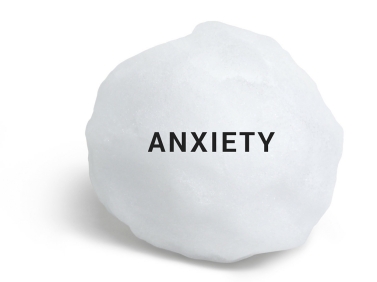
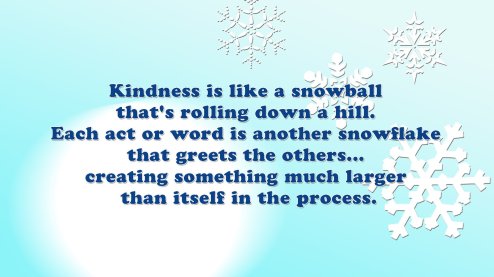

 This is a very hard post to write, for various reasons. There are some in the autism community who feel very strongly about autism parents accepting all autistic behaviours and that parents should not speak negatively about them. Being autistic myself, I see both sides and I don’t like seeing autism ‘martyrs’ who humiliate their children online with real names, videos and photographs of their child’s difficult moments and speak constantly of the negatives as if there are no positives, purely to obtain attention/sympathy. But we have to face facts, being an autism parent is extremely hard, especially if your child has an ASD sub-type such as pathological demand avoidance (PDA) and/or if there is a complex presentation such as additional conditions e.g. ADHD or mental health difficulties.
This is a very hard post to write, for various reasons. There are some in the autism community who feel very strongly about autism parents accepting all autistic behaviours and that parents should not speak negatively about them. Being autistic myself, I see both sides and I don’t like seeing autism ‘martyrs’ who humiliate their children online with real names, videos and photographs of their child’s difficult moments and speak constantly of the negatives as if there are no positives, purely to obtain attention/sympathy. But we have to face facts, being an autism parent is extremely hard, especially if your child has an ASD sub-type such as pathological demand avoidance (PDA) and/or if there is a complex presentation such as additional conditions e.g. ADHD or mental health difficulties. “But we don’t see it in school” (Mum must be lying), “S/he’s fine here, no trouble.” (Mum is attention-seeking, maybe she has FII), “Really? I can’t imagine him/her behaving like that, s/he’s never done that here.” (Mum must have poor parenting skills/there are issues at home).
“But we don’t see it in school” (Mum must be lying), “S/he’s fine here, no trouble.” (Mum is attention-seeking, maybe she has FII), “Really? I can’t imagine him/her behaving like that, s/he’s never done that here.” (Mum must have poor parenting skills/there are issues at home). Autistic children – like children with other disabilities – are vulnerable. Because they are vulnerable they need additional support. It is part of their parent’s role to seek that support and help, as any decent parent naturally would. So why, are there so many professionals that actively obstruct this process and refuse the help and support those vulnerable children need?
Autistic children – like children with other disabilities – are vulnerable. Because they are vulnerable they need additional support. It is part of their parent’s role to seek that support and help, as any decent parent naturally would. So why, are there so many professionals that actively obstruct this process and refuse the help and support those vulnerable children need?
 It had to be done. Due to the popularity of the ‘
It had to be done. Due to the popularity of the ‘
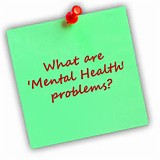

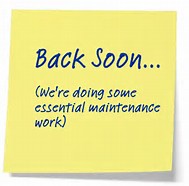


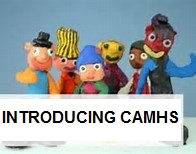
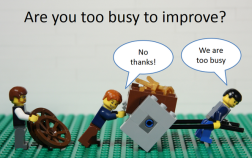




 This post is prompted by reading another blogger’s
This post is prompted by reading another blogger’s  (NAS page updated to remove comment since screenshot taken! Still available to view here however:
(NAS page updated to remove comment since screenshot taken! Still available to view here however: 
